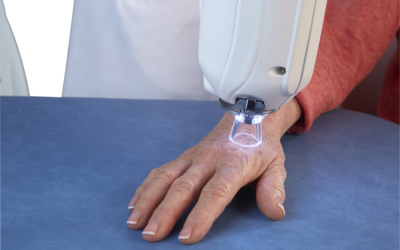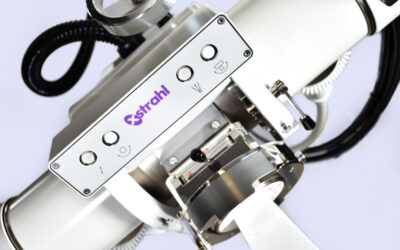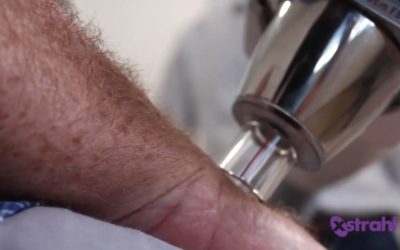Non-melanoma skin cancer is the most common cancer in the world today, with approximately 1.5 million cases in 2016—and that number is growing rapidly. While this type of cancer has a low morbidity rate, surgical treatment often leaves patients with dysfunctions, disfigurements, and psychological scarring, particularly when cancers are located in the head and neck regions.
Using superficial and orthovoltage radiotherapy treatments to treat non-melanoma skin cancers can help minimize damage to healthy tissue while providing effective treatment to the cancerous cells. When cancers are present in cosmetically sensitive areas, radiation therapy can provide a more optimal result, with less scarring. Radiotherapy can also be a smart choice for elderly patients or others who have comorbidities that may make surgery a greater risk or prevent proper healing. The painless, in-office treatments only take a few minutes each, allowing patients to get along with their lives with no downtime.
When treating benign conditions, radiation therapy can also be effective as an antiproliferative and as an anti-inflammatory mechanism. Some of the musculoskeletal conditions that may benefit from radiotherapy include Dupuytrens disease, plantar fibromatosis, and keloid scarring. Benign skin conditions may also be treated with radiotherapy, including chronic resistant dermatoses, such as psoriasis, eczema, and disseminated superficial actinic porokeratosis.
To learn more, watch a recording of our webcast, “Superficial & Orthovoltage Radiotherapy for Non-Melanoma Skin Cancer and Benign Conditions,” presented by Dr. Richard Shaffer, Clinical Oncologist at GenesisCare and Xstrahl’s Medical Director.






